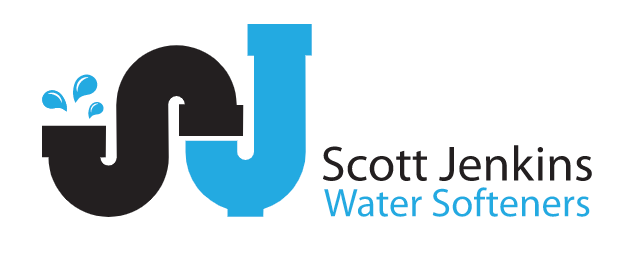First of all, it’s helpful to understand what makes water create limescale in the first place, given that soft water gets rid of the scale build up. Rainwater is naturally soft. But the problems occur when the rain percolates down through the ground. It’s here that it comes into contact with the chalk and/or lime bedrock.
What happens is that the acidity of the water dissolves the chalk, which is full of hard water minerals like calcium and magnesium. The result is that the water flowing through the mains supply will be hard – especially in the south of England.
With a water softener in place, the chalky mains water is directed through the softener, which removes the chalk and limescale, effectively putting rainwater into your property. This happens on a continuous basis, with the water softener turning the mains supply from hard to soft – not only preventing any limescale from forming, but also dissolving any limescale that may have built up in pipework and appliances prior to the water softener being installed.
So why is it important to get on top of limescale?
Limescale around the home can be a pain in the neck. It shows up as unsightly chalky build up and soap scum that forms crusts and stains around taps, shower screens and showerheads. The furring you see in your kettle is another sign of it. And hidden from view, it can clog up pipes, affecting the performance of washing machines, dishwashers and even the boiler that runs your entire central heating system.
And here’s a sobering thought. The average home will collect around 70kg of limescale in the course of a year – that’s the weight of an average adult. We’re talking about a heavy-duty problem here!
So how do you remove limescale? The obvious answer would be through the use of household cleaning products. Or so you would think.
The problem is that, whilst products like Cillit Bang, Cif and Mr Muscle are good for cleaning kitchen and bathroom surfaces, as far as limescale is concerned, they can only provide a temporary fix at best. Besides being expensive, no matter how hard you scrub and clean with them thinking you’ve got rid of the limescale, it will always keep coming back. This is because these big brand cleaners never cure the issue at source – which is the hard water itself.
Another option is to ‘go natural’.
As an alternative to using chemicals, you could always opt for a more natural approach to cleaning. As examples, lemon juice and vinegar are effective for cleaning bathroom and kitchen surfaces. Where you encounter especially stubborn deposits, the even stronger acids found in lime juice and pickling vinegar are sure to get the job done.
As for removing limescale from washing machines, put a cupful of vinegar in the drum and run it on a normal cycle. Vinegar also works well in kettles. Fill the kettle to about a quarter capacity and boil, before giving it a thorough rinse.
At the end of the day, however, whether you use everyday household cleaning products, natural substances or even an old toothbrush, the fact is that limescale will simply keep returning – unless you stem the tide of hard water coming into your home through the mains supply.
The only guaranteed way to treat limescale, once and for all, is to ensure you have soft water coming into your property. If you live in a soft water area, that’s fine. But across counties like Sussex, Surrey and Hampshire, chalk and lime bedrock are widespread in the soil beneath our feet, inevitably creating hard water.
Water softeners are the long-term, cost-effective way to defeat limescale for good by turning hard water into soft water.
They allow pipework, boilers and all your household appliances, that may have battled the limescale onslaught for years, to be returned to their original state. This means they will last longer, be far less prone to breaking down and you’ll save loads of money on cleaning products – and maybe even cleaners – as a result.
On top of that, your surfaces and appliances will stay looking cleaner for longer and help to keep your home feeling wholesome. A water softener will ensure you’ll save on your household heating and cleaning bills in the years ahead. Just as importantly, a water softener will ensure limescale won’t return because it prevents hard water getting into your water system in the first place.
So, if you’re fed up or even concerned about limescale and soap scum in your property and would like to have a soft water system installed, as the area’s number one local supplier, SJ Water Softeners is here to help. Contact us on 01243 607494 or via email: scott@sjbs.info.
